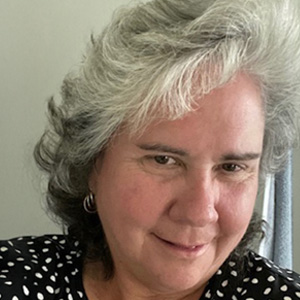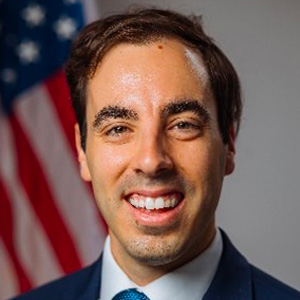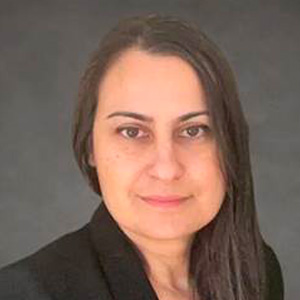Learning Objectives
- Gain awareness of the NIH ScHARe platform and mission
- Raise consciousness of pressure points where biases can arise across the AI model development pipeline, which also can be addressed through community engagement
- Foster the use of transparency as a means to mitigate biases during use and reuse of AI, Machine Learning (ML), and Large Language Models (LLM)
- Discover tools and resources for mitigating biases across the model development pipeline
About the Speakers

Deborah Guadalupe Duran, PhD
Dr. Duran is the Senior Advisor on Data Science, Analytics and Systems to the Director of the National Institutes of Minority and Health Disparities at the National Institutes of Health. She focuses on implicit and explicit biases in data curation, AI designs, algorithm development, and the impacts on communities. AI and ethics focus her efforts, and she strives to increase underrepresented populations capacity to utilize big data, the cloud and data science resources.
She has developed the ScHARe (Science Collaborative for Health Disparities and Artificial Intelligence Bias Reduction) Research Collaboration Cloud Platform focusing on social science data, including social determinants of health, to better understand health disparities and health inequities. ScHARe provides confidential and private workspaces to conduct research using the cloud. The ScHARe data repository offers researchers a platform for social science research, especially the inclusion of social determinants of health, and an opportunity to fulfill the mandated data management and sharing policy in a cloud space utilizing common data elements. In addition, monthly Think-a-Thons enable cloud instruction for novice users and offer space for collaborative AI research on health disparities, health care and health outcomes.
Dr. Duran also focuses on the inclusion of social determinant of health (SDOH) in all human research to better apply diagnostics, treatments, and interventions to reduce health disparities. Her countless hours are focused on the standardized measurement and metrics of SDoH.
Prior to this role, she has been the director of science policy, scientific planning and data analytics for over 20 years. She is an author, ScholarGPS top .05% of health equity scholars, Flywheel Award nominee, and received three HHS Secretarial Awards and numerous NIH awards exemplifying her leadership skills and ability to advance science. Prior to government, she was a principal investigator, an advocate for healthy equity, a professor, and a high school teacher. She is passionate about democratizing data and upskilling women and diverse populations to become leaders of AI, cloud computing and data science.

Mark S. Aronson, PhD
Mark is a United States Digital Corps Fellow supporting the National Institute on Minority Health and Health Disparities (NIMHD) within the National Institutes of Health (NIH). He works on the ScHARE (Science Collaborative for Health Disparities and Artificial Intelligence Bias Reduction) Research Collaboration Cloud Platform as a Data Science and Analytics Fellow, where he develops data governance policy, serves as a technical support for pilot research projects on the platform, and trains members of the ScHARE community in concepts of data science and machine learning. Mark’s research career spans experimental and computational approaches in synthetic biology, systems biology, and biophysics. Mark graduated from the John Martinson Honors College and the College of Engineering at Purdue University with a B.S. in Biological Engineering, holds a Ph.D. in Biomedical Engineering from Boston University, and completed postdoctoral work at the Howard Hughes Medical Institute’s Janelia Research Campus.

Elif Dede Yildirim, PhD, MS
Elif is a data scientist at the National Institute on Minority Health and Health Disparities, where she collaborates with the Science Collaborative for Health Disparities and Artificial Intelligence Bias Reduction (ScHARe) Think-a-Thon Research teams and works on enhancing platform and data usability for researchers with diverse skill sets. Elif holds a BCS degree in Computer Science from Auburn University and completed her Ph.D. in Human Development and Family Science at Syracuse University, where she also earned master’s degrees in applied Statistics, and Child and Family Studies. Her research interests include spatial patterns of neighborhood risk and resources, parenting and its impact on child outcomes, the efficacy of couple relationship education programs, and the influence of socioeconomic factors on health and development. Elif is a Carpentries instructor, teaches data and software carpentry workshops, and maintains the R ecology data carpentry repository.
About the ISD Webinar Series
The Investigator Skills Development (ISD) Webinar Series is presented by the Investigator Skills Development Unit (ISDU) of the UCSF Research Coordinating Center to Reduce Disparities in Multiple Chronic Diseases (RCC-RD-MCD).
Co-Sponsored by CAPS Town Hall and the CAPS Implementation Science and Health Systems (ISHS) Core
ISDU Director: Mandana Khalili, MD, MAS, Professor of Medicine, UCSF, Chief of Clinical Hepatology, San Francisco General Hospital
ISDU Co-Director: Edwin Charlebois, PhD, Professor of Medicine, Division of Prevention Science, UCSF